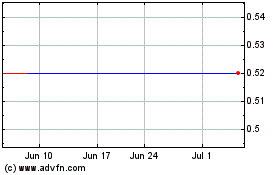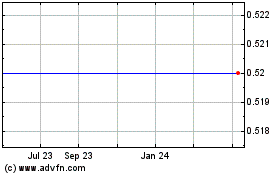Growing numbers of mortgage-backed securities investors are
taking a legal cudgel to banks that sold them souring
investments.
Citigroup Inc. (C), Wells Fargo & Co. (WFC) and Bank of
America Corp. (BAC) are facing multiple lawsuits over alleged
misstatements or omissions in their underwriting of residential
mortgage-backed securities, the banks disclosed Friday in quarterly
regulatory filings. The suits were filed since June in various
state and federal courts, and seek to recoup losses from
investments in mortgage related securities.
Bank of America said in its filing that it faces suits over more
than $375 billion in mortgage-backed securities.
Institutional investors are suing a multitude of banks. The
Federal Home Loan Bank of Chicago filed suit in state courts in
Illinois and California against a total of 17 institutions,
including units of H&R Block Inc. (HRB) and Barclays PLC (BCS)
last month. The Federal Home Loan Bank of Indianapolis, using
similar language, sued 10 institutions, including Citi, J.P. Morgan
Chase & Co. (JPM) and GMAC Mortgage Group, a unit of Ally
Financial Inc., in Indiana state court last month.
Cambridge Place Investment Management, a $3.1 billion manager of
asset-backed debt, is suing a dozen banks including Citi, Morgan
Stanley (MS), Goldman Sachs Group Inc. (GS) and J.P. Morgan in
federal court in Massachusetts.
Charles Schwab Corp. (SCHW) filed a suit against units of a
dozen banks in Superior Court of California in San Francisco,
seeking to rescind its purchase of mortgage-backed investments or
be paid damages for losses.
Banks that sold investors mortgage-backed securities, or that
underwrote the mortgages wrapped into the securities, are facing a
growing legal firestorm as those mortgages sour. Banks have
downplayed the financial risks, citing steep hurdles the investors
face in winning their suits.
Analysts have generally estimated banks could lose $26 billion
to $55 billion if forced to buy soured mortgages back from private
investors. J.P. Morgan fixed-income strategists said such losses
could climb as high as $120 billion industrywide.
Banks are fighting mortgage investors on multiple fronts.
Government- sponsored enterprises Fannie Mae (FNMA) and Freddie Mac
(FMCC) have demanded, with frequent success, that banks buy back
billions in mortgages that didn't meet "representations and
warranties" made when Fannie and Freddie purchased them.
Bond insurers MBIA Inc. (MBI) and Ambac Financial Group Inc.
(ABK) have sued several companies that originated home loans. Both
contend the lenders provided false or misleading information to
trick them into insuring mortgage-backed bonds.
Last month, investors including the Federal Reserve Bank of New
York, Freddie Mac, Allianz SE's (ALIZF) Pacific Investment
Management Co., manager of the world's largest bond fund, BlackRock
Inc. (BLK) and Metropolitan Life Insurance Co. (MET) wrote to Bank
of America, alleging poor underwriting by the bank's Countrywide
Financial unit, and demanding that the bank make good their
losses.
Wachtell, Lipton, Rosen & Katz, representing Bank of
America, responded in a letter dated Thursday that the investors
failed "to set forth a single fact in support" of the allegations
of misrepresentation.
The latest lawsuits against Citi, J.P. Morgan and other banks
show that demands by investors are spreading like wildfire.
Most of the banks being sued either declined to comment or had
no immediate response. The banks have in most instances not
answered the complaints in court documents.
Citi, in its filing disclosing the lawsuits, said they "are in
their preliminary stages," and wouldn't provide any estimate of
losses. The bank wouldn't discuss the matter further.
Wells Fargo, a target of the suits by the Home Loan banks, said
in its quarterly earnings filing that various class actions have
been filed against the San Francisco bank--and other
banks--"challenging aspects of the foreclosure process." It said it
"cannot estimate the possible loss or range of loss" from those
legal actions.
Cambridge Place alleged in its suit that it suffered $1.2
billion in losses it wants to recoup; it alleges the banks' facts
in the securitization documents "were not true."
The suits by the Federal Home Loan Banks of Chicago and
Indianapolis all assert the underwriting banks that sold the loans
to investors made "material misstatements." One of the suits
asserts, "Though the securities themselves are complex, the abuses
by the defendants can be put in simple terms. The defendants did
not tell the bank the truth about the loans that comprised the
mortgage pools."
Banks named by Schwab in its July 15 suit include Citi, BNP
Paribas SA (BNPQY, BNP.FR), Bank of America, Deutsche Bank AG (DB,
DBK.XE), Goldman Sachs, Wells Fargo, UBS AG (UBS, UBSN.VX), and
Morgan Stanley.
Schwab said it paid the defendants $1.38 billion for investments
backed by residential mortgage loans. Schwab hinted it could find
misstatements in more investments than those listed in the
complaint. Schwab alleged the defendants made statements about the
investments and credit quality of the mortgages that were
"untrue."
Previously, Schwab sued units of Bank of America, UBS, and J.P.
Morgan Chase over the sale of mortgage-backed securities to the
company's bank.
-By Matthias Rieker, Dow Jones Newswires; 212-416-2471;
matthias.rieker@dowjones.com; and Prabha Natarajan, Dow Jones
Newswires; 212-416-2468; prabha.natarajan@dowjones.com
(Erik Holm in New York contributed to this story.)
AMBAC (NYSE:ABK)
Historical Stock Chart
From Mar 2024 to Apr 2024

AMBAC (NYSE:ABK)
Historical Stock Chart
From Apr 2023 to Apr 2024
